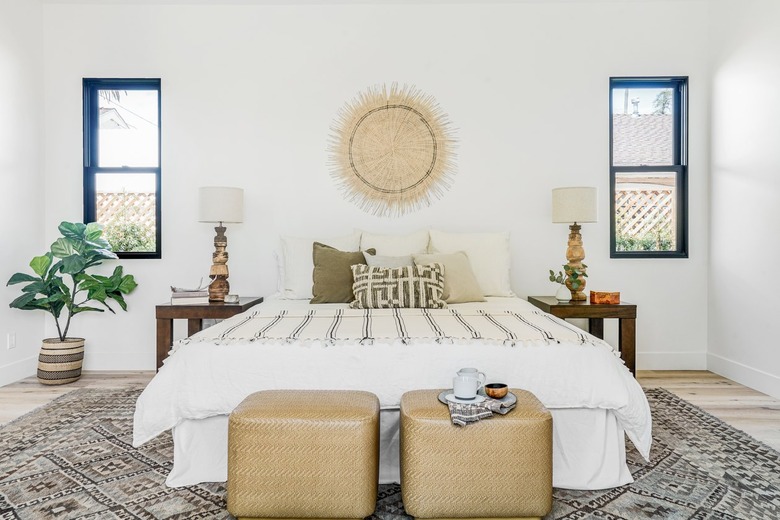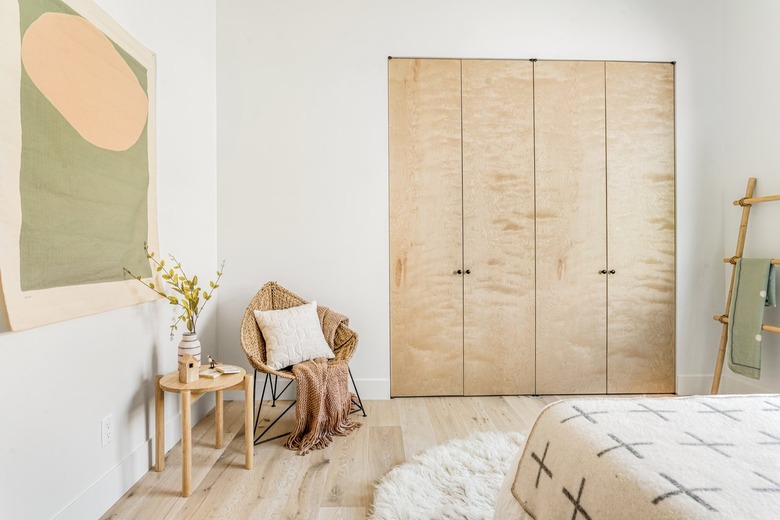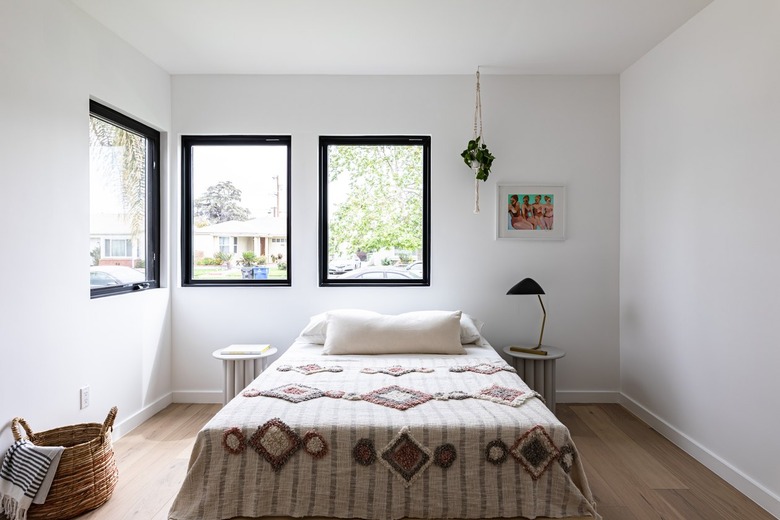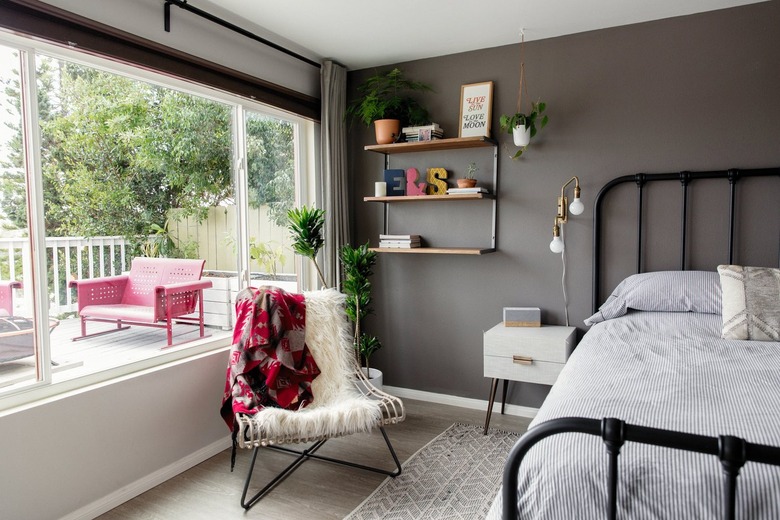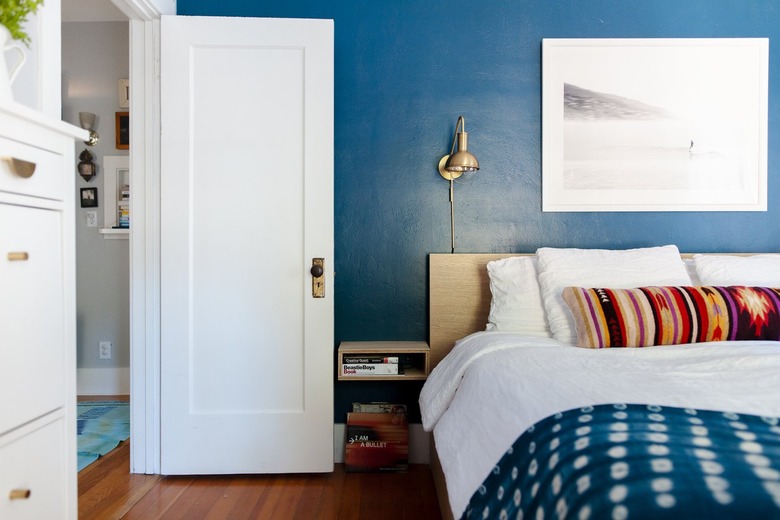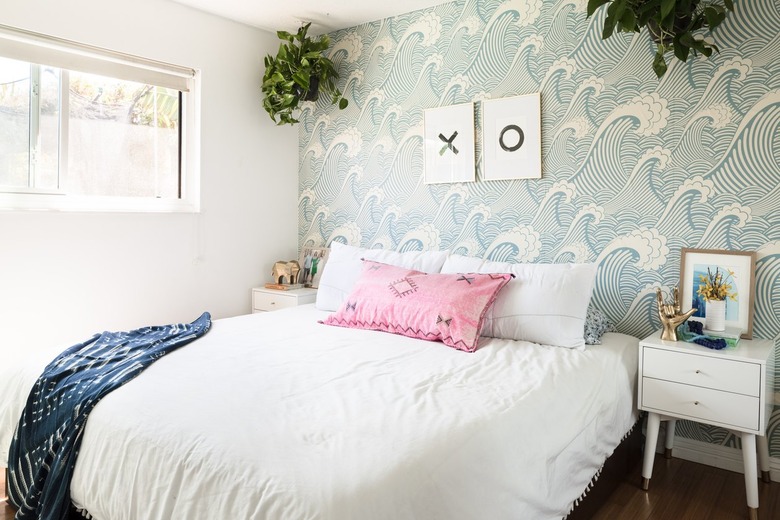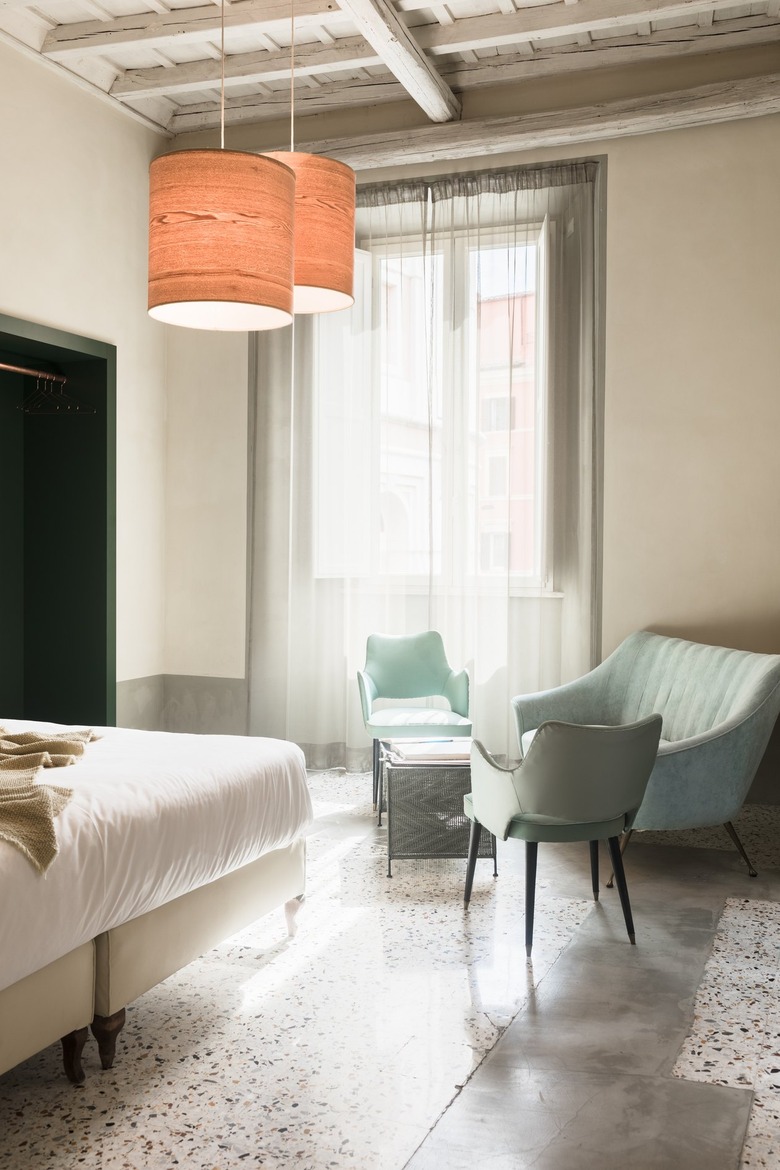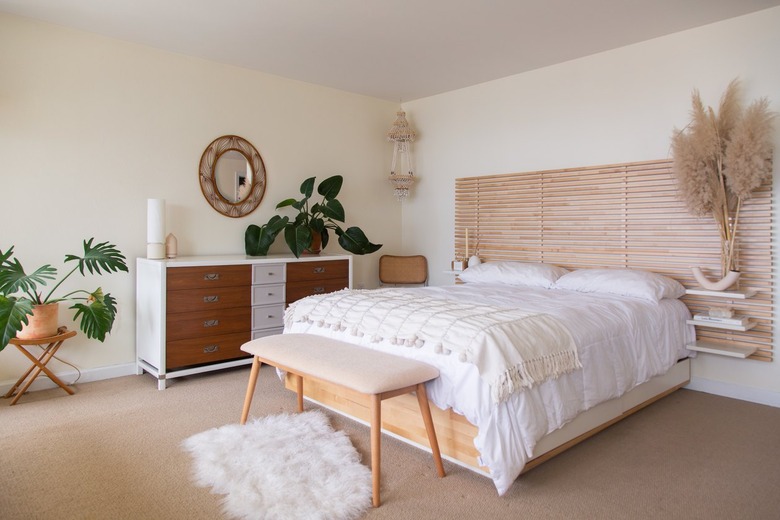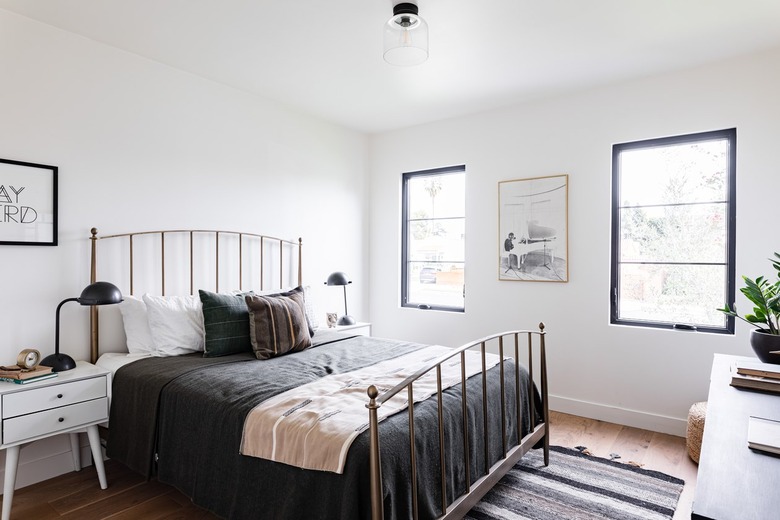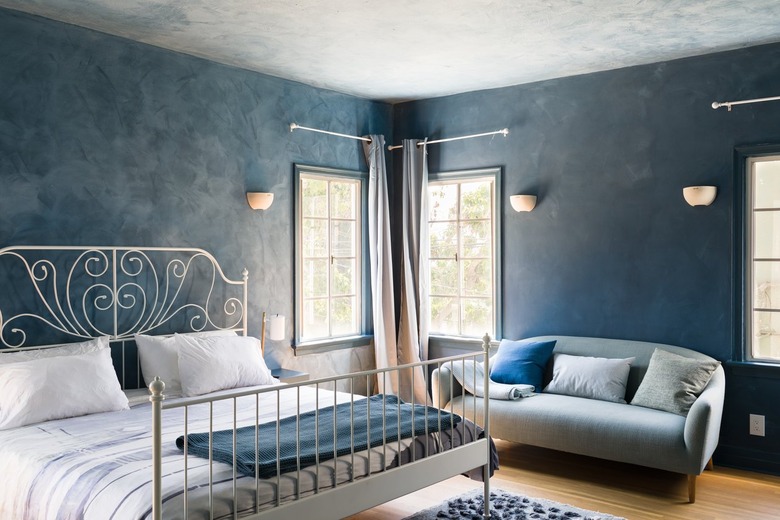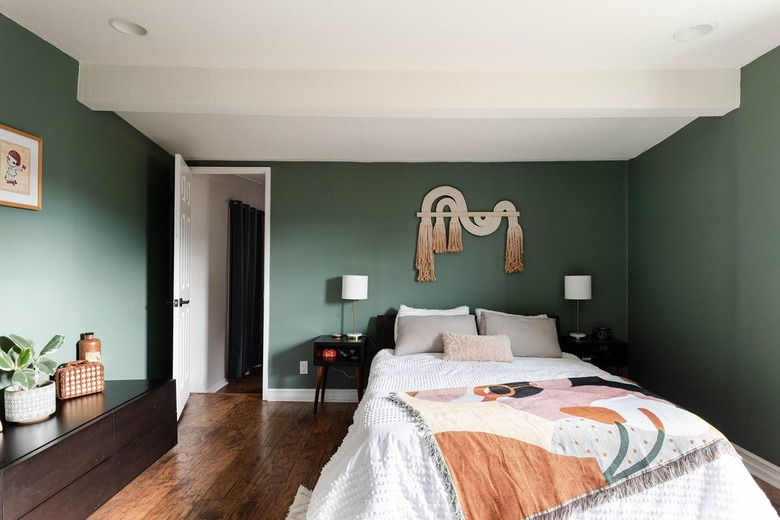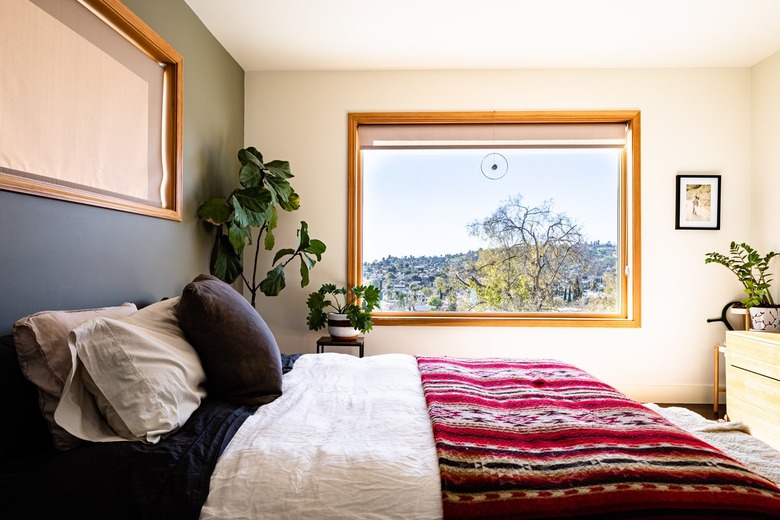7 Feng Shui Bedroom Colors And Tips To Harmonize Your Space
When people talk about feng shui, what does this really mean? For starters, feng shui is an ancient art and science developed over 3,000 years ago in China that connects the five elements of nature: wood, fire, earth, water, and metal. The literal translation of "feng" means wind and "shui" means water. In Chinese culture, wind and water are both associated with good health. Thus, using feng shui in interior design could bring good fortune.
The main tools used are the compass and the bagua. The bagua, or the energy map, is an octagonal grid containing the symbols of the I Ching, the ancient oracle on which feng shui is based. The Compass, or Luo-Pan, is used to access the deeper information of a building or home. It consists of bands of concentric rings arranged around the magnetic needle.
At its core, the practice enables you to influence and achieve specific life improvements by designing your surroundings in harmony with the principles of natural energy flow. In feng shui, how you arrange a room, your color choice, the way lighting is used, and even the specific shapes of furniture and decor are all key factors in balancing the energies of any given space. And what other room needs to feel as balanced, comfortable, and harmonious as your sleeping quarters? Practicing feng shui will help support a good night's rest and foster a better connection with yourself and your partner if you share a bedroom. Scroll ahead for seven key elements and feng shui bedroom color ideas that will help you create balance and abundance in your personal refuge.
7 Key Elements for Creating Feng Shui in Your Bedroom
7 Key Elements for Creating Feng Shui in Your Bedroom
While color is a key component of feng shui in any room, there are other factors that need to be considered as well. For a truly balanced design, the five elements of nature need to be woven throughout your space.
1. Use color schemes that enhance balance.
Practitioners of feng shui recommend using warm, rich tones such as terra cotta, orange, cream, and soft brown to represent the element of earth and to create a cozy and welcoming atmosphere. Colors such as light blue, green, and lavender will also result in a tranquil and inviting energy in your bedroom. The addition of hot pink and red tones can increase the romance in a relationship by bringing in the fire element; however, you might want to limit these colors to accents such as pillows, throws, decorative objects, or even an accent wall. Consider using a softer shade of pink for the linens or bedroom walls.
One simple way to approach feng shui principles in a color scheme is by starting with a white or off-white base and adding in colored pieces to avoid a single color being too overwhelming.
2. The position of your bed matters.
In feng shui, the best position for your bed is as far away from the door as possible while still allowing you to keep an eye on the room's entrance. This allows for a feeling of safety and protection while you rest. Also, try not to position your bed under the lower angle of a pitched ceiling or a ceiling fan. These features have depressing energy that will literally push you down while you sleep. Putting your bed under a window lacks the support and protection of a solid wall. Headboards, especially those made of solid wood, are considered good feng shui because they provide added strength and support behind your head.
3. Show some curves.
When selecting bedroom furniture, lean toward pieces with soft lines and curved silhouettes. Maybe it's with a bed frame like this metal one or a lounge chair. Square corners have pointed energy and can create a sharp environment. Feng shui practice says "poison arrows" formed by right angles are thought to direct negative energy to your sleeping form.
4. Declutter your space.
Clutter can be a symbol for unfinished business and impedes forward progress. Streamline your furnishings, keeping only the essential pieces, and keep clutter contained to allow chi to flow freely around your bedroom. Clutter under your bed has its own type of energy that can disturb your sleep as well. This approach applies to your closet and nightstand, too. Make sure your closet is clean and organized, which will help give you a sense of control over your life. Add plants in the corners of your space to help prevent energy from stagnating. And limit what you place on the surface of your nightstand. Keep it simple with a lamp, a few inspirational books, a picture, and a plant or fresh flowers.
5. Minimize what your room is used for.
Your bedroom should be a place of rest, contemplation, and intimacy. Exercise equipment, phones, and a TV give off and take up a ton of energy. Your sleeping quarters are a place where you turn off the stresses of the day. If your space must serve double duty, use a folding screen or hanging fabric to conceal a treadmill or a desk. If you're not willing to part with your TV, keep it in an armoire or cabinet so you can shut the door while you sleep versus having it out in the open.
6. Bring beauty into your surroundings.
Try hanging your favorite pieces of art on the wall opposite your bed. This way it's the last thing you see before you go to sleep and the first thing you see when you wake up. Your artwork should be something that makes you feel joyful and inspired. If your direct view from the bed is your bathroom or messy closet, hide those views with curtains or simply by closing the door. Another item you don't want to place opposite, next to, or over your bed is a mirror. In addition to bouncing too much energy around the room to allow for a good night's rest, these reflective surfaces are thought to magnify problems and worries.
7. Layer your lighting.
When lighting your bedroom, flexibility is key. You want lots of natural light during the day, soft light in the evening, and darkness while you sleep. Exposure to sunlight first thing in the morning influences your serotonin levels and can affect you for the rest of the day. When selecting your light fixtures, make sure to provide a variety of sources, including an overhead pendant or chandelier, a table lamp, or wall sconces.
Feng Shui Bedroom Colors Based on the Five Elements
Feng Shui Bedroom Colors Based on the Five Elements
According to certified feng shui expert Laura Cerrano, you can use The Five Elements Theory to help select the color scheme of your bedroom. Let's take a closer look at how color and feng shui intersect with these elements.
Earth Element: Beige and Cream
Colors like beige, cream, soft brown, and even light green are all excellent choices when it comes to creating an atmosphere of support. And bonus: These earthy shades are good options for a shared bedroom with a spouse or partner to help strengthen the relationship in both flexibility and decisiveness.
Metal Element: Gray
Lustrous finishes such as silver, gold, bronze, or even white represent the element of metal. Feel free to layer various shades of gray with different color linens. Or consider adding metallic pulls to your dresser or investing in new curtain rods. This element encourages confidence and clear communication, so keep it coming.
Water Element: Blue and Black
To connect with the element of water, shades of blue like this tranquil setting create a feeling of ease and comfort. Blue and black also support wisdom and connection, so opt for a cozy blanket or curtains flaunting the dramatic hue in your bedroom. You could even follow the lead of this setup and add a loveseat or bed bench with blue upholstery.
Wood Element: Green and Teal
For a calm and nurturing vibe, green hues and natural wood finishes are a no-brainer. For example, this bedroom evokes a sense of reliability and stability, much like wood itself. This soft sage green wall color works wonders especially when paired with gorgeous hardwood floors and neutral bedding.
Fire Element: Red and Orange
If you're looking to spice things up in your bedroom or invite a new relationship, red is a great shade to use in this space. While the fire element can be overwhelming and energizing, limiting it to an accent wall or throw pillows is enough to switch up the energy without overwhelming your space. The bold scarlet wallpaper in this bedroom feels very passionate.
Just a Few Things to Keep in Mind
Just a Few Things to Keep in Mind
Now that you've learned a little bit more about how to create feng shui in your bedroom, the most important part to remember is that your home decor should be personal to you. Don't feel pressured or obligated to do something in your space that doesn't feel authentic. And before you land on the position of your bed, consider the following:
West: West is contentment and will promote sleep. However, contentment can also bring with it laziness and low motivation, so starting a new career while your bed is facing this direction might not be the best idea.
East: East represents creativity and the beginning or start of absolutely everything. This brings out feelings of ambition and growth and it easily promotes career expansion. Consequently, your mind is more active and will not be able to quiet itself as easily.
Southeast: This is for people who have trouble communicating, as it promotes good communication, enhanced creativity, and an active lifestyle.
Southwest: Facing your bed southwest will calm you down and make you feel at peace. You will also have a feeling of being more settled in your life and relationships.
North: North can increase various sleep disorders such as insomnia and make you rather lethargic in your life.
Northeast: This position can make one feel at edge at all times. It brings out strong emotions.
Northwest: This area symbolizes the energy of helpful people and guides. Consider placing black and white pieces of decor or accents that represent the elements of metal and water in this corner of your bedroom.
South: South is really bad for sleep as the energy surrounding it is rather high. If you find yourself in many heated arguments in your relationship, one way to minimize those is to change the direction of your bed stat.
Try and integrate feng shui elements into your bedroom in small ways, rather than making over your entire space. Maybe it's as simple as repositioning your bed or adding a new light fixture. Try an accent wall in a feng shui color that really speaks to you, like blue or green. Or maybe it's time to take the leap and move the TV out of your bedroom — you might discover that you sleep way better without it. Balance often comes from making small shifts in your decor rather than starting over completely.
